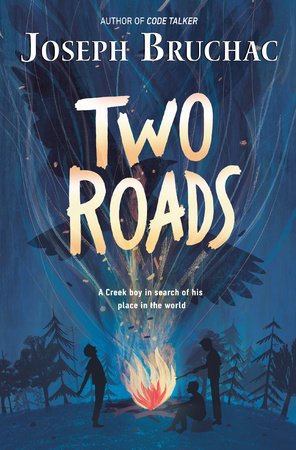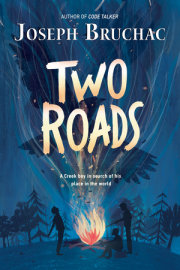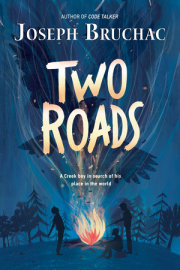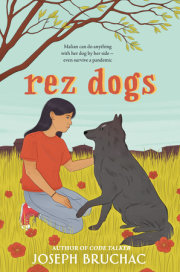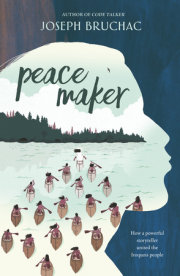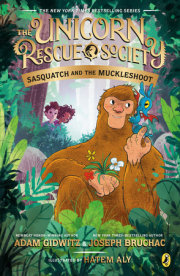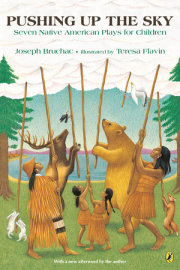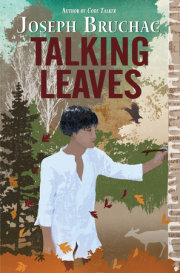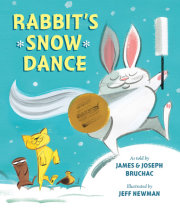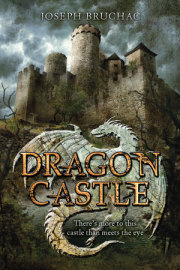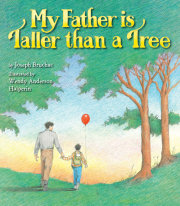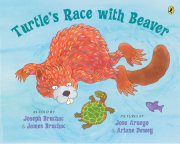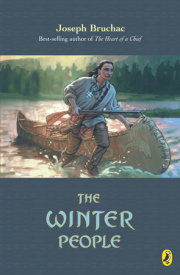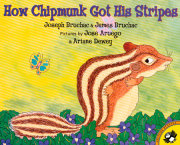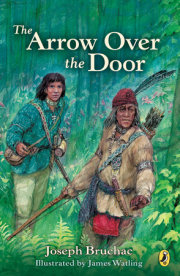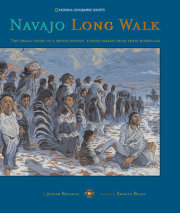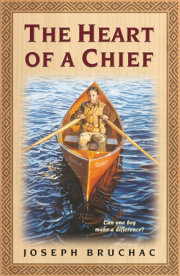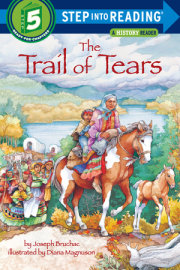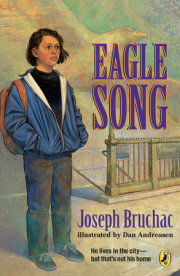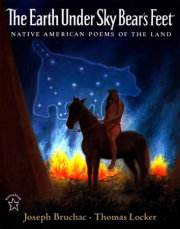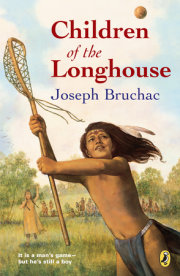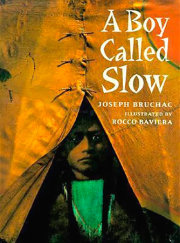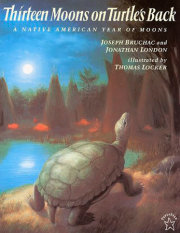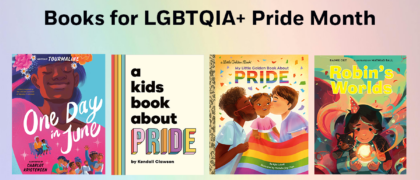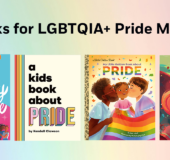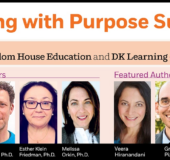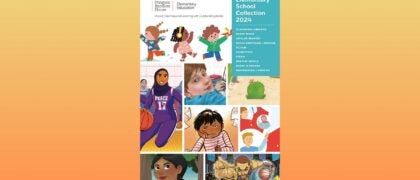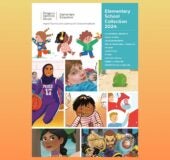Chapter One
Keeping Up
The red road stretches out before us, a long ribbon of light.
“Keep up, Cal.”
I am the right size for my age, which is twelve—this being 1932 in the year of Our Lord. I can run as fast as the Dickens. But when it comes to marching I always fall behind. Despite Pop’s limp, he always gets a few steps ahead of me.
I cannot help but sigh.
Pop doesn’t hear that. Though he can still catch the songs of the birds in the trees above us—like the redbird he pointed out a mile back—real low noises escape his ears. It has been that way since the sixth of June in ’18 when he was partially deafened by the booming of the big guns.
We keep marching along. I’m doing a better job now of keeping up. I don’t mind walking like this, mile after mile, just as long as it doesn’t start my father remembering.
Pop looks up at the sun. “It was hot like this that day. It was about this time,” he says. “Exactly three forty-five p.m.” There’s a faraway look on his face now. He’s telling the story to himself, almost unaware of me listening.
“‘Over the top and take that wood,’ General Hartford orders us. And then the whistle blares. So over the top we go. Every one of us as green as grass.”
It’s the place where Pop always pauses. Sometimes we’ll walk as much as a mile before he says more.
“And then the Devil’s Paintbrushes opened up and down we went, like a wheat field being mowed.”
Another silence as another mile passes.
“No,” he says. “Not like wheat nor rye. Mown grass does not bleed or make the ground so slippery you can’t hardly stand.”
He pauses, shakes his head, as if trying to wake up from a bad dream. Then he starts walking again. That faraway look is gone from his face. I’m not sure he even knew that look was there. He’s finished that story for now, leaving it behind.
Which is what I would like to do. But almost as soon as he started the story, as it sometimes happens, something took over. This happens to me now and then. I’m drawn backward. I find myself in the middle of someone else’s life. Not remembering it or seeing it. But living it moment by moment.
I’m no longer walking down a Southern road in the here and now of 1932. It’s years ago—over there. I’m someone else in full uniform. Crouched next to my father in the muddy trench. I’m holding a gold pocket watch in my left hand, looking at the letters inscribed on the back.
S.K.E.
My heart’s pounding like a drum as we wait for the signal. Sweat is beading my forehead. That loud shrill whistle sounds. We scramble up over the top, stumble forward through the broken strands of barbed wire, the half-buried bodies of men who took part in the last wave. We leap over craters left by shells. The only sounds are heavy breathing, the thudding of feet on the frozen ground, the rattle of our canteens against the metal buckles of our belts.
Then the Huns open up with their MG 08 machine guns—the Devil’s Paintbrushes. Bullets hiss around us, moving faster than the speed of sound, followed by the cracking of the air. Men start bowing their heads and dropping to their knees as the earth beneath us is painted with blood. Their blood. Our blood. My father falls, but I pick him up, throw him over my shoulder to carry him . . .
“Cal? Cal?”
I’m so lost in that vision of a France I’ve never really seen that I’ve been in a daze, not even seeing my feet crunching the red roadside gravel.
I run my hands back through my long hair, waking myself back up to the real world.
“Yes, sir!” I say. “Present and accounted for, sir.”
That makes Pop chuckle. It’s not hard for me to amuse Pop, unless he is in one of his black moods. Then nothing will bring the light of a smile to his sun-browned face, even though I have to try.
I take care of you, you take care of me.
That’s the deal, as Pop puts it. All we have is each other.
I pick up my pace to match his. I’m counting my steps, keeping my face calm so as not to let on where my mind has been. Pop would feel bad if he knew where his speaking about the war sometimes leads my overactive brain. I know he always has my best interests at heart. He just wants to take good care of me.
For example, to help me know what to do when there’s trouble, he tells scary stories. Like the one about a giant all made of stone that likes to eat people. Or the story of monster birds that would fly down and carry away children. I do not know where he got them from, but those tales about bloodthirsty monsters are really something. He doesn’t tell me them just to scare me, though. Take courage from the story, he says. In every one of those stories, those monsters end up getting defeated—usually by a boy or girl who’s listened to the advice of elders and learned the monster’s weakness. It’s also been there in the books I used to read in the little library in the school—stories of boys managing to win against all kinds of odds. Treasure Island. Tom Sawyer. Being able to get stories like those is the thing I miss most about school.
I feel the weight of the few books I do own in my pack. Mrs. Hall, who was my sixth-grade teacher, gave them to me when the school closed. She made sure every one of the few boys and girls still left when it shut down got one or two books. Me, being the one who read the most, I got three.
“Here, Cal,” she said. “I know you’ll treasure these.”
And she was right about that.
I’d buy more books if I had the money and a place to keep them other than my pack. One day, probably years down the road, when Pop and I have a place of our own again—as Pop promises we will—I am going to have a whole shelf of books in my room. Maybe two.
But even without school, I have kept on learning. Pop knows a lot. Though he doesn’t often share what he writes, he keeps a sort of journal—an old half-used ledger book that he was able to buy for a nickel from a storekeeper we did some odd jobs for. Now and then he will pull out this half pencil he keeps in his shirt pocket to write down his thoughts as he takes note of things. Maybe the weather or where we found a good place to camp, or the name of some farmer who treated us friendly-like.
Some of the other things he writes down, as he remembers such things his own parents taught him, are about plants. He has read to me from that journal the names of all sorts of things and how they might be used—like how chewing green willow bark cures a headache or how tea made from pine needles is good for a cough.
I’m studying the trees and plants by the road as we trudge along. It being March and us being in the southland, there’s the chance of finding things ready to gather. Yesterday there was a fine cattail marsh I pointed out. No houses around. No one likely to drive us off. We took off our shoes and waded in. Red-winged blackbirds—Pop’s favorite birds—were calling all around us and bobbing on the tallest stems. The young stalks pulled out easy. The bottoms of their stems were white and crunchy to taste. Better than celery.
No marshes today, though. No nut trees ready to harvest yet, it being months too early. But the brush bodes well for the presence of rabbits.
“See that, Pop?” I say. “Rabbit run.”
“All right, Cal,” he replies. “Good eyes, son. After we make camp, we’ll set up some snares.”
Sometimes, in addition to finding myself in the past in someone else’s body, I can also sort of look ahead to what’s coming. Where we camp for the night will be high enough on a hill that no rain will flood us out. A nice dry oak grove.
I can hear Pop talking to the rabbits as he puts out the snares.
“Hey, you, we need you.
“Come on, rabbits, we need you.
“Hey, you, we thank you.
“Come on, rabbits, give us food.”
“Where-all you boys think you’re a-headin’?”
That rough, unfriendly voice jolts me out of that future to an unpleasant present. A big man on an equally big white horse is blocking the road in front of us. There’s a double-barrel shotgun cradled loose over his left arm, half-pointed our way.
The man’s square face is as red as his hair. His mouth is set hard.
“Morning, Captain,” Pop says, snapping a salute. His voice is friendly and polite. I’m glad of that. When my father’s voice is otherwise, things may not turn out so well. Pop’s stance is relaxed and easy, not like a coiled spring.
Pop drops his hand to untie his kerchief and unbutton the top of his shirt. Then he wipes his neck with that kerchief. His doing so makes that man up on his horse relax some. I know why.
He’s caught sight—as Pop intended—of the slightly paler skin of my father’s neck and chest. Both Pop and I are dark. And we tan fast. We become brown as berries from living out as we have done since losing the house and farm when the bank failed. That man on his high horse might have been taking us for Negroes.
We are in the South. Here in the South, though I have never understood why, those whose great-grandparents came from the Dark Continent are not treated fair.
“Y’all serve?” the rider asks.
“You could say that. Corporal. Second Division.”
“Belleau Wood?” the man says.
Pop nods. “Soissons, too. PFC. Under Marine Brigade Commander John Lejeune, Captain.”
“Ah’m jes a corporal, too, brother,” the red-haired man says. There’s a hint of a smile on his lips as he shakes his head. “Only got that rank on account of all them officers getting kilt off. Jes’ a peckerwood doughboy who didn’t know no better than to join up to kill him some Huns. Never expected they would do such a job of killin’ us.”
Neither of them says anything for a while.
I try hard not to think too much about what I just heard. I don’t want to find myself there again in my imagination. I concentrate hard on listening to what’s close by. The soft huffing of that big horse. The sound of the red-haired man’s heavy breathing. That bit of a wheeze in his throat is like what I’ve heard from others who served in the poisoned air of Belgium and France.
I am not going to let myself get taken over. I’m here in the South. There’s a redbird callingwheet-wheet-wheet-wheet wheeyou wheeyou wheeyou from somewhere farther down the red earth road.
That’s the best thing for me to listen to—that birdsong being repeated again and again.
Wheet-wheet-wheet-wheet wheeyou wheeyou wheeyou
Wheet-wheet-wheet-wheet wheeyou wheeyou wheeyou
“We are,” Pop finally says, “knights of the road. My son, Cal, and me. Heading to Rustburg, assuming we are on the right road.”
The big man pulls lightly on his reins to move his horse out of our path. He lifts his shotgun—uncocked now—up over his shoulder and points with his other hand.
“Some twenty miles,” he says, coughing to clear his throat. “Red House crossroad up ahead. You all want to go straight. Right turn’d take you to Appomattox.”
“Thank you,” Pop says.
“I would ride a ways with you,” the man says, turning his head to the side and spitting a gob of pink phlegm, “but I’m-a due over Pamplin City. Tell you what, though.”
He gestures down the road with three outstretched fingers. “Third house on your left. Half mile up. My place. Wife’s there. Rose. Tell her Red sent you.” He claps his palm on his chest making a hollow thump, loud as a drum. “Red Campbell. She’ll give you dinner. Boy of your’n looks hungry.”
“Thank you,” Pop says, drawing himself up a bit. “But we, my boy and me, we would like to work for what’s offered. Might you need some wood split or a fence mended?”
Red Campbell nods as he clears his throat again. “That is how you folks be, right? Different from them beggars or bums looking for handouts.”
“We’re hoboes, sir,” I say, speaking up for the first time. It surprises me almost as much as it does Pop, who looks at me with one eyebrow raised. “We have an ethical code.”
Pop raises that eyebrow a little higher. Staying silent most of the time is my nature. But when I do start talking, especially about our way of life, I sometimes do go on a bit. Right now Pop is wondering if I am about to begin spouting that ethical code which he used to read me from his journal but which I now know by heart. Starting off withDecide Your Own Life, Do Not Let Another Person Run or Rule You.
I could spout that out now—but I’ve said all I intend to say.
Red laughs, loud and deep as thunder. He leans down to slap me on my back in a friendly fashion that nearly dislocates my shoulder. The grin on his face is wide as Jack’s Old Lantern.
“Wood splitting it is,” he says. “And tell Rose to give this eth-ee-cal son of your’n the slab of corn bread she was savin’ for me.”
He slides his shotgun into the sheath hung from his saddle, kicks his heels into the big horse’s sides, and they gallop off, dry red dust rising from the road behind them.
Copyright © 2018 by Joseph Bruchac. All rights reserved. No part of this excerpt may be reproduced or reprinted without permission in writing from the publisher.


